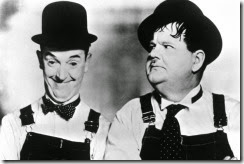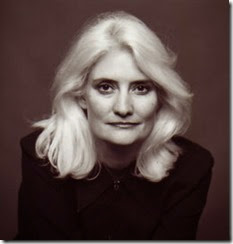
[C]ontemporary life is all about dialogue now, tweets and blogs overwhelming the well-made prosaic – Terese Svoboda
At The Millions, Emily St. John Mandel wrote:
This book is something entirely new: a novella that’s also a sort of poetry, a poetry that’s also almost a stage play. Pirate Talk is a strange and nastily beautiful book.
It’s not something entirely new because I’ve read several books that consist of nothing bar dialogue—I’ve even written a couple—but I agree with the “strange and nastily beautiful” bit. This is a literary novella about pirates and I don’t imagine too many of those come along in a lifetime. The only other book I’ve read about pirates was Treasure Island and I pretty much expect Pirate Talk to be my last. There’s something about pirates—I’m talking about the Golden Age of Piracy which ran from about 1650 until the mid-1720s—that’s ripe for caricaturing. And that’s pretty much what happens here. But here’s the thing, Terese Svoboda doesn’t focus on the pirates so much as she does on a sixteen-year-old wannabe pirate and his younger brother who ends up tagging along. (The brother’s eleven at the start of the book and may actually be his sister or at least his half-sister.) So if I was to compare this book with anything it would be with Rosencrantz and Guildenstern Are Dead. These are minor characters given voice.
The book opens in 1718 on Nantucket Beach and ends in 1728 somewhere in the Arctic. A lot happens in between—severing, slaughtering, scarring, scrimshawing, subterfuge, singing, slavery, sodomy, shipwrecking and stranding—but mostly a lot of talking. And surviving: these two are great survivors even if they don’t always survive in one piece hence the severing and the scarring. There is action but for obvious reason mostly they talk about what they’ve done or what they plan to do. This is nothing new. All Shakespeare’s battles took place in the wings.
Unlike most dialogue novels the conversations are not always between two people and since there are no speech tags it always takes you a few lines to work out who exactly is doing the talking. For example this is how Chapter 8 begins:
You don’t know the glory of being hung on a hook and dragged by your lip when you must leap from the water just to ease off the pain. Pull it out!
It will leave a gash if I pull it straight. I keep seaweed at the bottom that defies the wounds of the flesh. How else does a fish last with a grimace of hooks?
You departed so strangely, the winter upon us, and Peters fast approaching.
It had to be.
I have the whale’s eye still. Will that help?
Don’t show it, there be sailors about even in the dark of this clouded night and the ship’s heaving to the gunwhales. It might roll away.
I’m sorry to catch you.
I’m glad to be caught. When I saw it was your hook, I rejoiced. Just wrench out the barb. I will brace myself against you and the rail, tight.
There.
That’s better. I have been hauled up by the mouth four times looking for you and your brother, each time promising this and that until they tossed me over.
Turns out the first speaker’s a mermaid and the second is the younger brother. The mermaid appears several times throughout the book and this is not actually her first appearance. She was seen on land earlier on:
This fishy part is new and shocking. [that’s the boy talking]
Not so new. The skirts all women wear to confound men hid it. The cane laughed at you.
The mermaid only appears to the younger of the two as a mermaid. She insists the boy is actually a girl and her sister and she’s come to return her to their father. The boy’s naturally suspicious. He suspects she’s out to drown him: “Dust to dust, as the church says, not water to water.” What her intentions are we never know for sure and legends differ wildly but it’s not unknown for mermaids to lure young men to follow them beneath the waves either to their deaths or to live in an enchanted state.
The whale’s eye needs some explaining. In the opening chapter the two boys have run across a beached whale:
I’ve seen boats as big as this whale. I’ve seen gryphons the same size, with teeth growing in even as they were taking their last breath.
You have not. And not a live one.
I’ve been to sea, I’ve seen all you’re supposed to, being at sea. I am sixteen, after all.
If you’d stayed at home, you would’ve seen to Ma. I’d be a pirate twice, with two voyages under me, if I didn’t have that.
Quit your carping. Go stand on its middle. Maybe it will release its wind if you jump on it.
For sure it will stink to heaven if I jump on it.
Let’s poke out its eye.
It’s a wonder you’re not tired of poking whales, a’roving on the ocean like you do, with all the new sail.
Here’s the stick—let’s do the eye.
Cap’n Peters says there’s luck in a whale’s eye. Some men use saws on such as the eye, to examine the socket and take away the skull too.
They do eventually pop the eye out of its socket and carry it with them as a good luck charm.
Of course before everything else this is an historical novel in as much as you would expect the language used to be r ealistic. In an interview Svoboda says she’s “a great admirer of Defoe so … did have an appreciation for how talk was reported then.” How accurate exactly it is (or ought to be) is quite another thing. Arguments rage about the use of dialect but there was nothing in this book I struggled with, at least as far as the language goes. It’s a balancing act and I think she gets it about right. Her Frenchman was a little Pythonesque for my tastes though:
ealistic. In an interview Svoboda says she’s “a great admirer of Defoe so … did have an appreciation for how talk was reported then.” How accurate exactly it is (or ought to be) is quite another thing. Arguments rage about the use of dialect but there was nothing in this book I struggled with, at least as far as the language goes. It’s a balancing act and I think she gets it about right. Her Frenchman was a little Pythonesque for my tastes though:
Aye, well, I don’t doubt that he had zome meanz about him. Give Miz Hanged and her bird the, the how-do-you-say? cloizter where she might go pale in the arm and the faze so as to fetch a better huzband in zee first zlave market we come to, or persuade Julian Julien zhe is worth a virgin’z ranzom. White as zee znow you will be by zen, and a big enough purze for uz, like az not. And find her a fine comb of fizhbone got from her father, the fine caztrated Julian. Adieu, mon cheri, I will veezit you zoon, zo zoon. Az for her having a brother—Julian Julien muzt have led a buzy youth.
Hanged.
The silly voice does tip the whole thing over into pantomime though and I was glad to see the back of the Frenchman I have to say. “Hanged,” is what the parrot says, not the clichéd, “Pieces of eight.” It’s the only thing he says. Which is how we know it’s the parrot talking and his well-timed interruptions can be funny. Then again by this stage in the proceedings the brother-who-might-be-a-sister is dressed up in drag as a woman (or properly attired as a woman if, indeed, that is what he/she is) so, yes, there are a few pantomimic moments in the book like when the one puts the eye out of the other:
Aye Let me seize that sword of yours. You’ll do yourself harm.
My eye! You have cut mine eye! You have poked out my eye!
Don’t—scream—so.
My eye, my eye!
It’s just the one, you can do all your looking with the other.
Get away. Get away. My eye!
Hold it with your thumb to stop it bleeding.
Monster!
We’ll get you a patch, a lovely patch out of hide, or a black swatch. It’s not like losing another leg.
Of course, the other thing we expect from our historical novelists is that they do their research. And she did including, she says, “a course on pirates at [the College of] William and Mary”. Elsewhere she says, “Pirate Talk or Mermalade was written without hope of publication—really the best frame of mind if you can stand it.” I would agree there completely and there’s little chance of a book like this getting onto The New York Times bestseller list but most of the books on that I wouldn’t want to read anyway. This, on the other hand, was (mostly) a delight. Compared to other dialogue novels it’s not the best—I think I would hand that award to Dave Eggers for Your Fathers, Where Are They? And the Prophets, Do They Live Forever?—but it certainly has its moments and it’s pretty obvious that a poet’s written this. (She has eleven books of poetry under her belt.)
In a self-interview she has this to say on the subject of why we should expect more dialogue novels in the future:
I have a note from when I started my fifth novel, Pirate Talk or Mermalade in 1997: “Why this is only dialogue: history is a series of whispers. The landscapes change but the whispers continue.” While landing Pirate Talk, I kept having to justify Why Only Dialogue. Talk Like a Pirate Day had yet to be invented, and Philip Roth hadn’t run his all-dialogue story in the New Yorker. Thirty years ago, Chip McGrath at the New Yorker told me I did description well. With my usual perversity, I did without. Both for the fun of it, and because I love Daniel Defoe’s dialogue. People from another time in history differ in culture from ours, their world and language is closer to sci-fi than the contemporary. I wanted the reader to feel as if he were listening through some temporal fold that physics is always promising that would allow him to overhear voices in the 18th century. But really, contemporary life is all about dialogue now, tweets and blogs overwhelming the well-made prosaic.
In her review Jacquie Piasta writes:
It seems that Pirate Talk or Mermalade is meant to be a novelty. But the book's whimsical streak turned out to be its greatest weakness. This is a shame. Everything else about the book creates the foundation for a terrific novel. With some minor editing, it could become an interesting, engaging story that is also accessible to read. In fact, I wouldn't be surprised if these brothers became something akin to Harry Potter.
 I’m not sure I agree. The term ‘novelty’ is a bit demeaning; it suggests short-lived and of no great consequence. Of course she then imagines these two on a par with Harry Potter and that’s never going to happen either; Didi and Gogo have their fans but they were never going to outshine Laurel and Hardy. But I do have to agree that a little editing would’ve gone a long way. Quite simply all I would’ve added was an introductory paragraph summarizing each upcoming chapter. Once this was a common practice—Jules Verne used it in most of his books—and would go a long way to making the readers’ lives a bit easier. Cormac McCarthy resurrected the approach in Blood Meridian:
I’m not sure I agree. The term ‘novelty’ is a bit demeaning; it suggests short-lived and of no great consequence. Of course she then imagines these two on a par with Harry Potter and that’s never going to happen either; Didi and Gogo have their fans but they were never going to outshine Laurel and Hardy. But I do have to agree that a little editing would’ve gone a long way. Quite simply all I would’ve added was an introductory paragraph summarizing each upcoming chapter. Once this was a common practice—Jules Verne used it in most of his books—and would go a long way to making the readers’ lives a bit easier. Cormac McCarthy resurrected the approach in Blood Meridian:
Chapter I
Childhood in Tennessee – Runs away - New Orleans – Fights – Is shot – To Galveston – Nacogdoches – The Reverend Green – Judge Holden – An affray – Toadvine – Burning of the hotel – Escape.
That would’ve been helpful.
In his review on Goodreads David Katzman says that “PToM has a learning curve” and that’s a good way of putting it. If you’ve never read a novel in dialogue before they can be a bit disorienting until you see how the author’s handling it because each makes up his or her own set of rules and some are easier than others; Seth Abramson writes that “it’s much like … reading one’s first manga, and struggling to follow words and images in their right-to-left, rather than left-to-right slipstream.” I’m struggling to get to grips with Philip Roth’s Deception at the moment but I’ll get there.
If you’ve no interest in pirates I wouldn’t worry too much about that. It’s less about buccaneering and more about families and what keeps them together. The simple fact is that most of us would stick with our brother even if he accidentally put out one of our eyes. After all we do have another one. And, if we’re really lucky, perhaps a whale’s eye and who knows what we might see if we looked through it?
You can read two chapters online: Chapter 1 – Chapter 2.
***
 The many faces of Terese Svoboda’s writing include eleven books of poetry, fiction, translation, and over a hundred short stories. Trailer Girl and Other Stories, her third novel, was recently reissued in paper. “Unnerve thyself: the violent and enthralling short stories in Trailer Girl detonate on contact,” writes Vanity Fair. Her memoir Black Glasses Like Clark Kent was termed “Astounding!” by the New York Post, selected as a Japan Times “Best of Asia 2008” book, and won the Graywolf Nonfiction Prize. Praised as a “fabulous fabulist” by Publishers Weekly for her last novel, Tin God, Vogue lauded her first, Cannibal, as a female Heart of Darkness. Svoboda is also the recipient of the Bobst Prize (for Cannibal), the Iowa Prize for poetry, and the O. Henry Award for the short story. Her work has been selected for the “Writer’s Choice” column in The New York Times Book Review, a SPIN magazine book of the year, and one of the Voice Literary Supplement’s ten best reads. Her opera WET premiered at LA’s Disney Hall in 2005. She has taught at Sarah Lawrence College, The New School, Bennington, Davidson University, the University of Hawaii, the University of Miami, Fairleigh Dickinson, Williams College, San Francisco State College, and the College of William and Mary, and is teaching fiction at Columbia’s School of the Arts. She is married to the high-tech inventor Stephen Medaris Bull, and she is the mother of three children. They live in New York City.
The many faces of Terese Svoboda’s writing include eleven books of poetry, fiction, translation, and over a hundred short stories. Trailer Girl and Other Stories, her third novel, was recently reissued in paper. “Unnerve thyself: the violent and enthralling short stories in Trailer Girl detonate on contact,” writes Vanity Fair. Her memoir Black Glasses Like Clark Kent was termed “Astounding!” by the New York Post, selected as a Japan Times “Best of Asia 2008” book, and won the Graywolf Nonfiction Prize. Praised as a “fabulous fabulist” by Publishers Weekly for her last novel, Tin God, Vogue lauded her first, Cannibal, as a female Heart of Darkness. Svoboda is also the recipient of the Bobst Prize (for Cannibal), the Iowa Prize for poetry, and the O. Henry Award for the short story. Her work has been selected for the “Writer’s Choice” column in The New York Times Book Review, a SPIN magazine book of the year, and one of the Voice Literary Supplement’s ten best reads. Her opera WET premiered at LA’s Disney Hall in 2005. She has taught at Sarah Lawrence College, The New School, Bennington, Davidson University, the University of Hawaii, the University of Miami, Fairleigh Dickinson, Williams College, San Francisco State College, and the College of William and Mary, and is teaching fiction at Columbia’s School of the Arts. She is married to the high-tech inventor Stephen Medaris Bull, and she is the mother of three children. They live in New York City.
 Good as new. Good as new. It’s a marketing thing, a positive spin. A divorced person is not a single person. We say some’s “single again” but they’re not. Single people can marry. Divorced people remarry. When I came back home after my first marriage fell apart I told people I used to be a whole person but when I married I gave up half of myself and I never got it back in the divorce. And that was true. Solitude became loneliness—I even write a poem about that in 1989—and I didn’t like being lonely. There’s another expression kicking around for an ex-married person: “damaged goods”. Well, that was me. What was left of me wasn’t right.
Good as new. Good as new. It’s a marketing thing, a positive spin. A divorced person is not a single person. We say some’s “single again” but they’re not. Single people can marry. Divorced people remarry. When I came back home after my first marriage fell apart I told people I used to be a whole person but when I married I gave up half of myself and I never got it back in the divorce. And that was true. Solitude became loneliness—I even write a poem about that in 1989—and I didn’t like being lonely. There’s another expression kicking around for an ex-married person: “damaged goods”. Well, that was me. What was left of me wasn’t right. 












